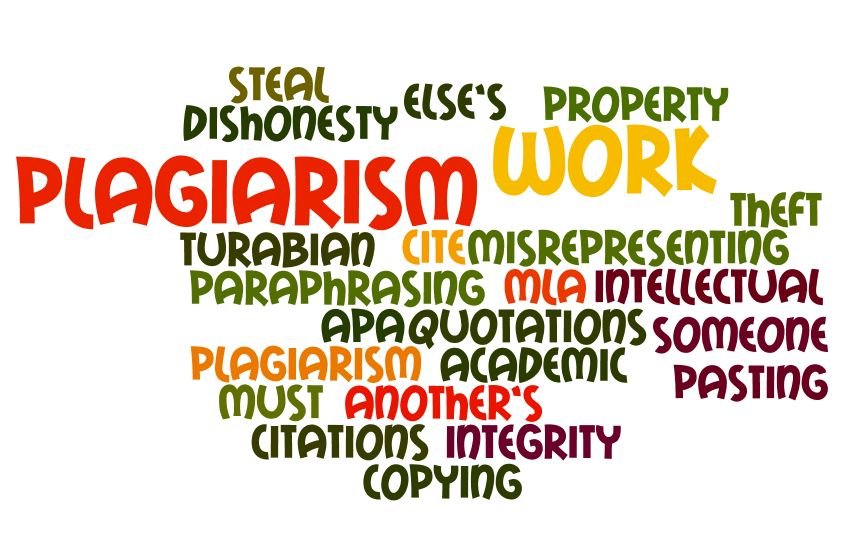Caught Stealing, Shame ON YOU!
Published on May 15, 2017
Published on Wealthy Affiliate — a platform for building real online businesses with modern training and AI.

Is private label content sharper than a double-edged sword?
It certainly can be.
If you don’t use caution, you can be deeply impaled or at least lacerated and severely injured by its serrated edges. Better yet, you are probably all the wiser to avoid it.
Didn’t your parents ever tell you not to play with fire and sharp shiny metal objects?
I had no intention to write this post, but based on several comments to a question I recently posted regarding how to build your email list, I was presented with content that I could no longer ignore.
There is a trend that I find very disturbing that has reared its ugly head. It's all about using other people's free content, and in some cases modifying this content, to include as a free giveaway in order to create an incentive for visitors to sign up to their email lists and other opt-ins on their websites.
Am I missing something here? Please tell me. Has anyone ever heard of copyright infringement? Or outright plagiarism?

I know there have been posts written here about plagiarism recently in a general context, but this act of using someone else's content such as an e-book and then modifying it even with ostensible explicit permission of a license smells fishy and seems to be blatant plagiarism and outright stealing in its most shameless form to me.
Shame on you, if you are engaging in this highly questionable practice!
Navigating Dark Murky Waters
So why my issue with Private Label Rights?
Evidently, one day someone who noticed there were lots of lazy content writers and marketers out there came up with the money-making idea to create a license to sell content so buyers could re-brand the content under their own name, modify it, and resell it to make money

Wikipedia cites the following about Private Label content:
“While licenses differ with each author and seller, the basic premise is that the license permits buyers to re-brand the content under their own name and brand (excluding copyright). In general practice this means that the product can be modified, sold, resold or repurposed in many different formats.” (Source: Wikipedia)
Did you notice there is one caveat here, excluding copyright?
Ah, ladies and gents this is where we have entered the dark murky waters of privacy label rights’ ambiguous laws concerning the rights of intellectual property owners. .
But first I would like to discuss key differences and distinctions between privacy label rights and its close cousin, a piece of intellectual property called a Work for Hire.
Work for Hire
A Work for Hire is an agreement between a work’s creator of original content and their employer produced on behalf i.e., a special outsourcing entity such as a company, publishing house, or a magazine etc., where the original work is specially ordered or commissioned.

A simple example of a Work for hire is where a work created by an employee is part of their job.
In a Work for Hire, the employer i.e., the outsourcing entity is assigned and retains ownership of the copyrighted work, not the creator who is the employee or is hired as an independent contractor.
Here is an example of a typical "Work for Hire":
1) The outsourcing entity first approaches or hires the creator (i.e. Fiverr) to create an original work, with the preexisting agreement that the outsourcing entity would be attributed copyright of the work.
2) The creator creates the work as a "deliverable" in care of the outsourcing entity, and thus delivers the work to the outsourcing entity upon completion.
3) Rightfully, after the work is created the outsourcing entity is given credit for the copyright.
There must be a written agreement between the parties specifying that the original work commissioned for is a work made for hire by use of the phrase "work for hire" or "work made for hire.”
Ready to put this into action?
Start your free journey today — no credit card required.
In a Work for Hire, it’s important to understand the following chronology:
An employer or some outsourcing entity first hires a writer to produce a new original work which has yet been created as a “deliverable”, therefore there is a contractual understanding that the outsourcing entity will automatically be granted ownership of the original work, not the creator of the work.
Therefore, there is very little risk of copyright infringement in this type of arrangement.
Not so for Private Label Rights.
Privacy Label Rights
Private Label Rights (PLR) is the antithesis of a Work for Hire: a buyer such as a marketer purchases a license which permits the buyer to re-brand the content i.e. e-book, e-report, manual, blog post, etc. that is an already pre-existing original work, under their own name.

This pre-existing work is owned by a copyright owner or a PLR sales site, who is the content creator. Rarely is the PLR sales site the content creator, they usually purchase the content from third parties who write the content themselves and are the copyright owners.
The content creator who owns the copyright has given permission for their intellectual property to be shared without attribution, by selling you a license in exchange for a fee.
The buyer can then modify the content and resell it in many different formats. Or they can give the modified content as a free giveaway.
What was previously unclear to me but is no longer, is that the original creator who licensed usage of the content that you are modifying and reselling or giving away as your e-book STILL retains ownership of the copyright.
Evidently if Wikipedia is right, you cannot claim copyright if you use PLR. You will have other legal rights as may be given from the author such as rebranding and modifying the content, but not to copyright the work.
In other words, you are giving away or selling someone else’s property. The license only gives you permission to rebrand it and modify it, but you can NEVER claim the content as yours!
So by the true letter of the law, does this now really mean that another’s intellectual property can be given away as PLR claims?
I really don’t believe so.
The Inherent Dangers of Private Label Rights
You can now imagine that that there are GREAT inherent dangers when navigating the turbulent waters and walking through the hazardous landmines when purchasing private label content from PLR sales sites and other sources for your own usage.
Here are only a few of the inherent dangers you may be subjected to:
1) Plagiarism – few PLR sales sites ever create the content they provide. They are owned by third party authors who wrote the content and who own the copyright. YOU the buyer can easily be subject to cease and desist letters and other legal threats. Even full-fledged dragged out law suits.
2) Duplicate Content Issues – Most of the sites that trade in PLR content sell the same content to multiple purchasers. If the work is publicly published, Google will treat most of the versions of the same work as duplicate content, and if it senses same content was sold to multiple purchasers, will penalize those sites.
3) Vetting of Content is Nearly Impossible – The content you purchased for your e-book could easily be an unlawful derivative that defies easy detection. The source could have been taken from something not online elsewhere, or it could be that the content was so heavily sold it could be next to impossible to locate the original author.
Even the best due diligence and state-of-the-art plagiarism detection techniques cannot detect if this content is free of plagiarism.
4) Tarnishing your Trust and Credibility – If you include the purchased content in a member’s area, on your website, or in an e-book where customers and visitors may see the content and compare it to other copies of the work online, your public and your fan's realization of perceived plagiarism will surely tarnish your credibility as a content writer.
Imagine how your customer would feel if they bought your e-book for only $10, and shortly thereafter were to see the same content elsewhere online selling for $3. Surely they would feel betrayed and you would likely end up on the “Rip-Off Report!”
5) Low Quality Content – Most PLR sites sell articles and books in packs that are largely purchased unseen. This prevents the buyer from determining the quality of the content prior to purchase. Furthermore, a majority of the time the content offered is of very poor quality requiring an enormous amount of editing or it needs to be trashed altogether.
A Better Solution: Write Your Own Content
Avoid the dangers and pitfalls by taking the time to learn to create your own original great content for your-books, e-reports, manuscripts, and websites.

Learning to write great content offers a tremendous personal reward: you will then be the king or queen of your own amazing content – and no one can ever take that away from you!
It will certainly take some practice, but when you develop the skills to write your own content from personal experiences, new exciting adventures will unfold to your readers and your audience will become captive.
There will be less stress when thinking about avoiding the landmines of plagiarized content, and this wonderful achievement will give you a feeling of absolute empowerment and of being totally in charge.
A truly phenomenal and gratifying feeling of total authorship of content that is highly respected and revered by your visitors and peers in industry as manifested by comments is a natural high like no other.
Marketers and authors who want high-quality, stand-alone content that they can post on their blogs or sell as an e-book need to either write the content themselves or, at the very least, hire a good ghostwriter.
Most definitely either process will be more expensive and/or more time-consuming, however this the only way to ensure that you get high-quality work that is free of copyright issues and other pitfalls.
As tempting as PLR content may be, it’s probably best not to walk among its hazardous landmines.
Your best and most personally rewarding move is to be safe and to write your own content.

Wishing you all on Great Content journeys ahead! Please feel free to post any comments about this article.
As always, I would love to hear from you.
Cheers,
Kaju
Share this insight
This conversation is happening inside the community.
Join free to continue it.The Internet Changed. Now It Is Time to Build Differently.
If this article resonated, the next step is learning how to apply it. Inside Wealthy Affiliate, we break this down into practical steps you can use to build a real online business.
No credit card. Instant access.